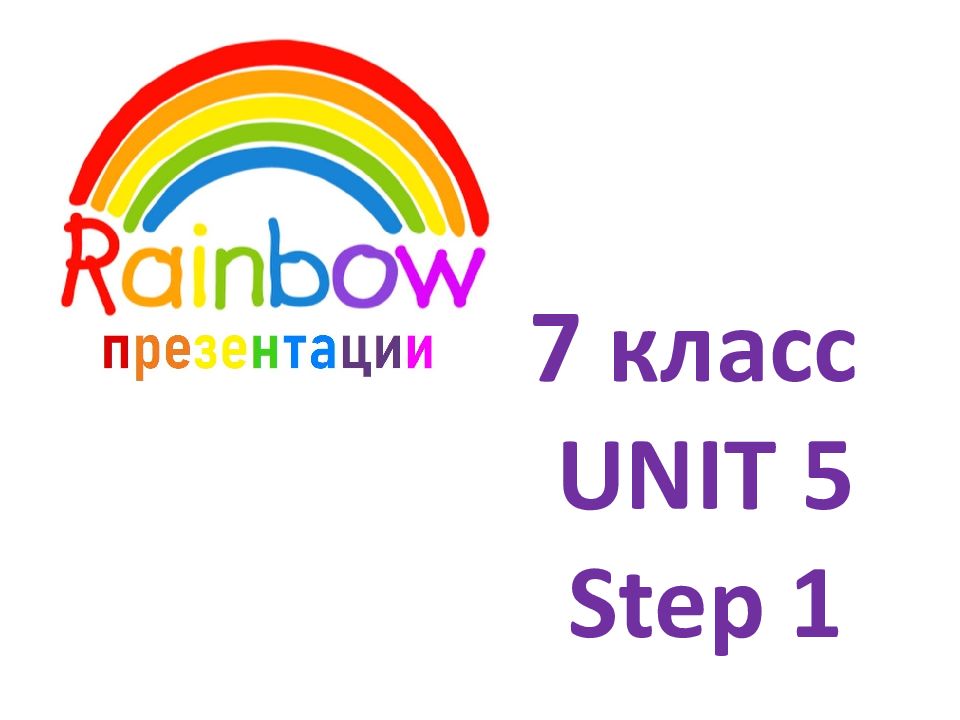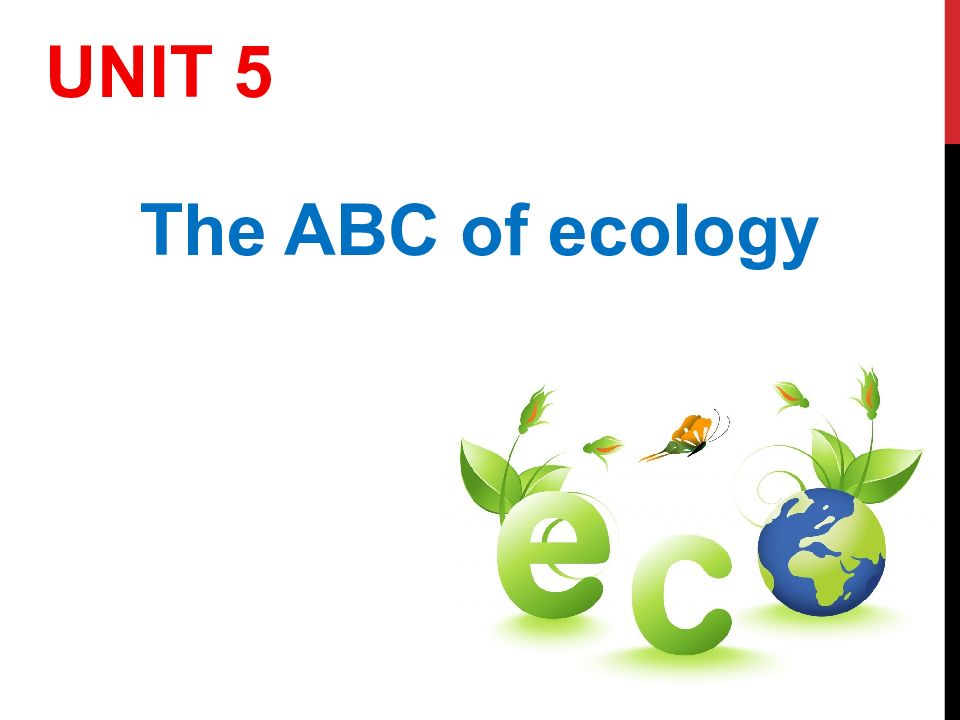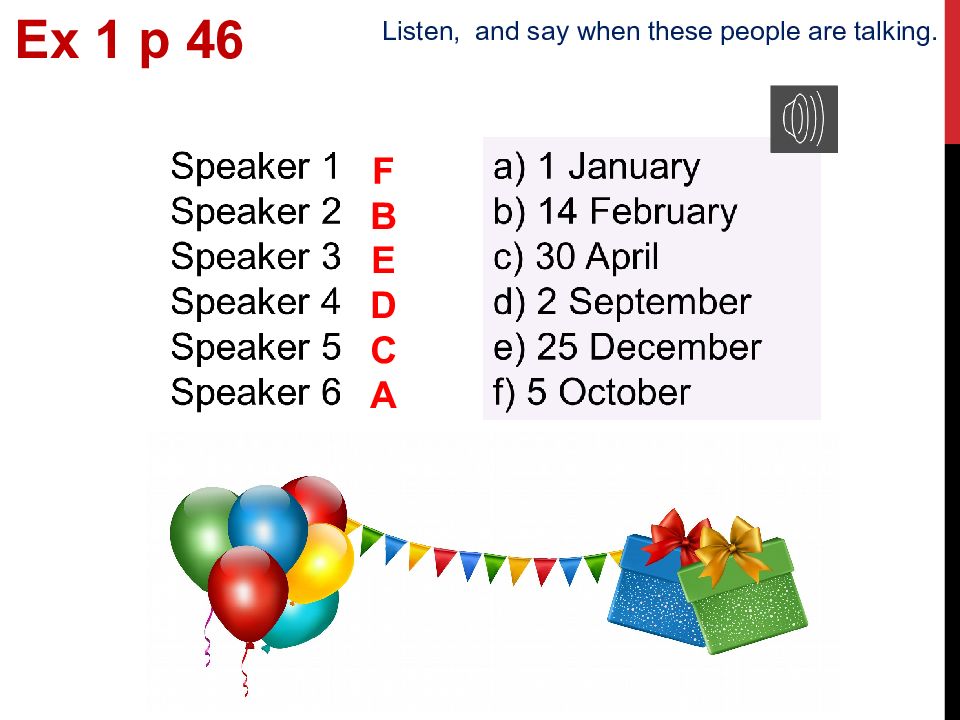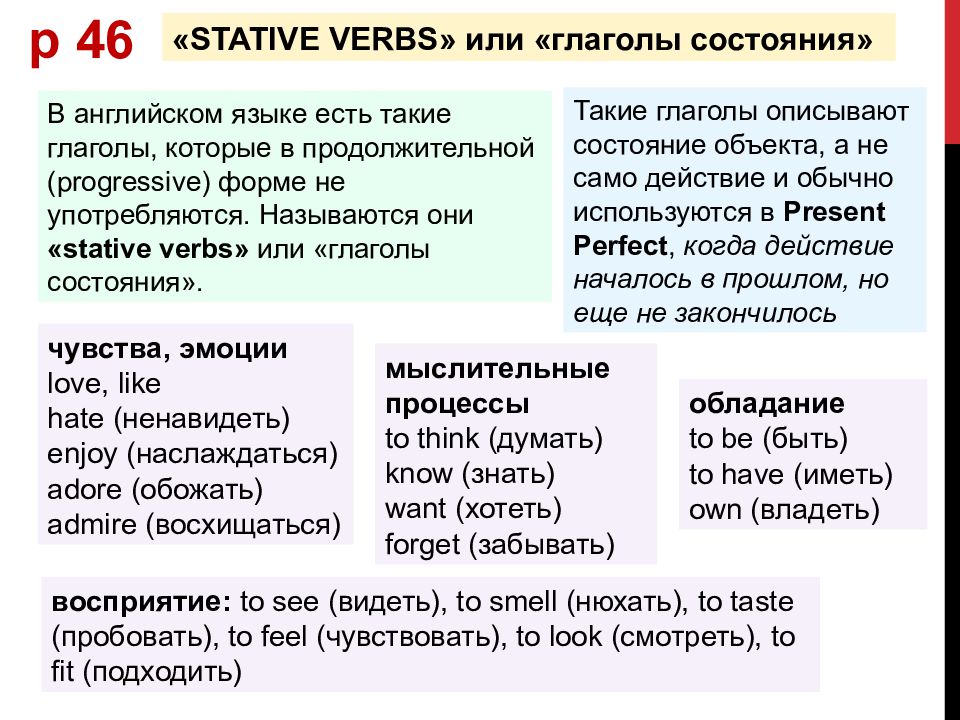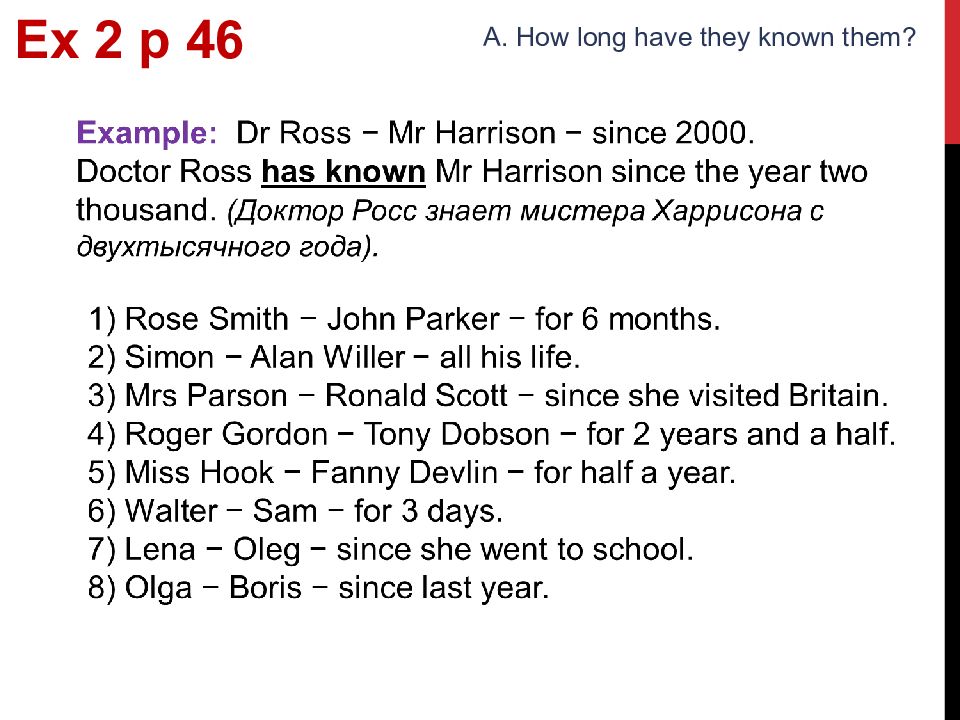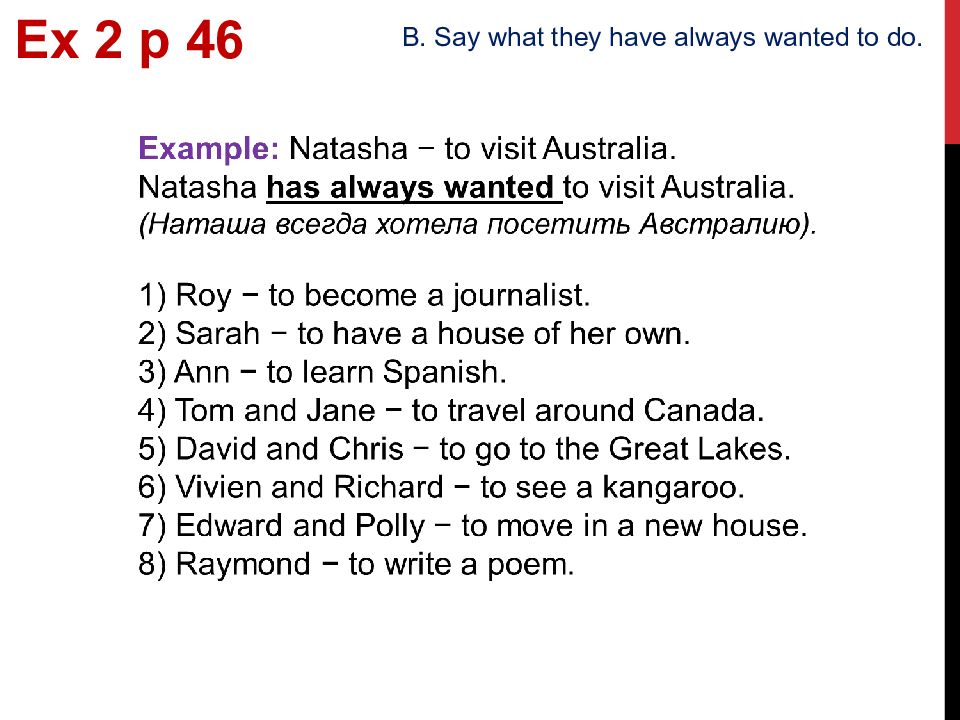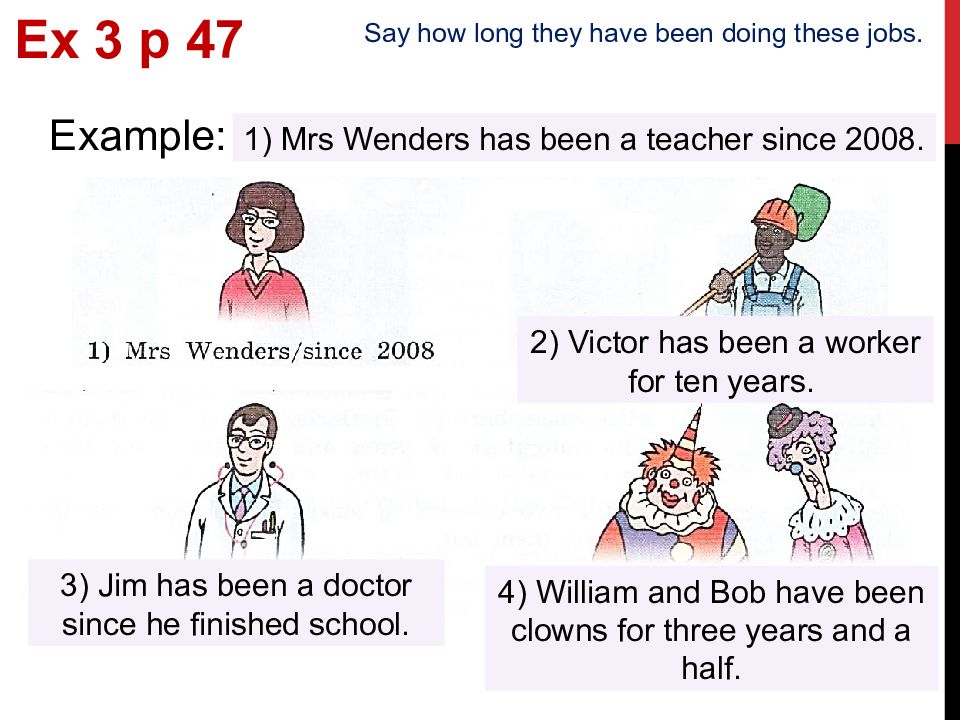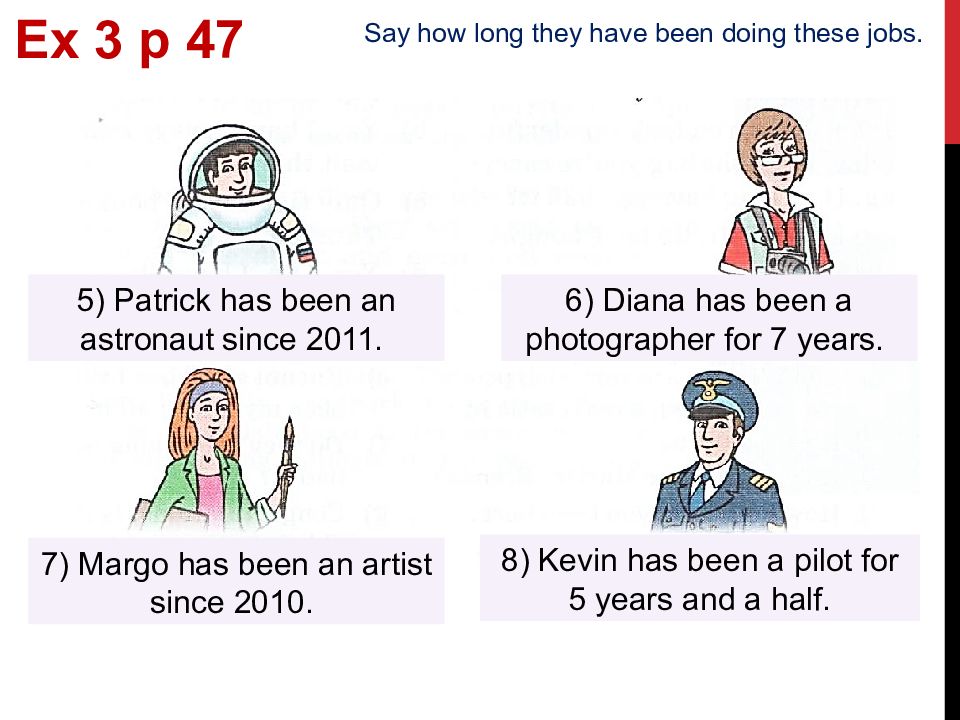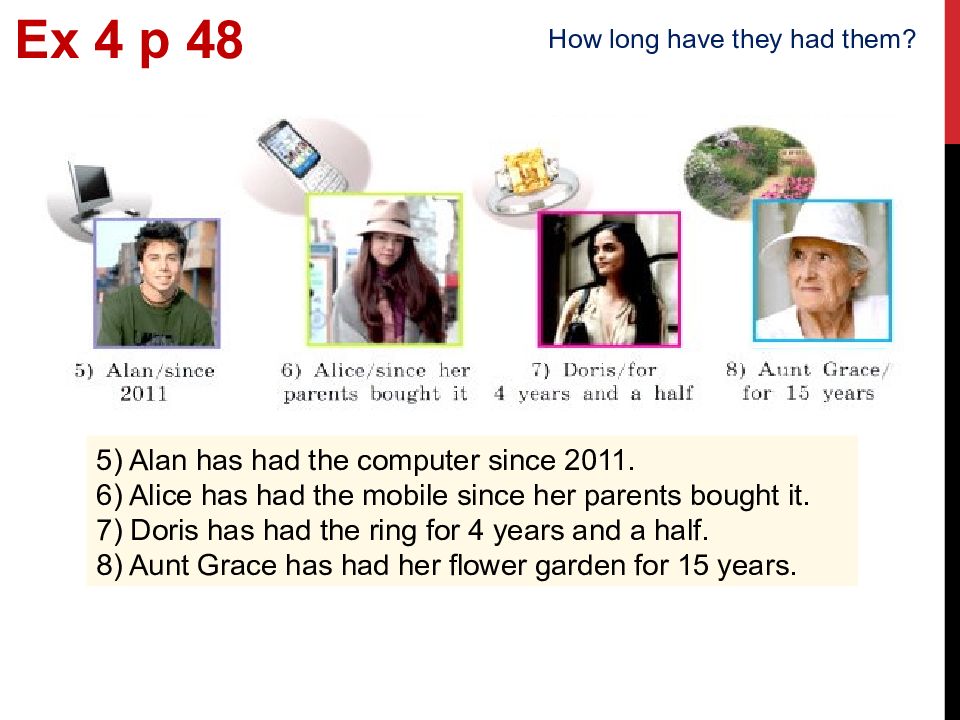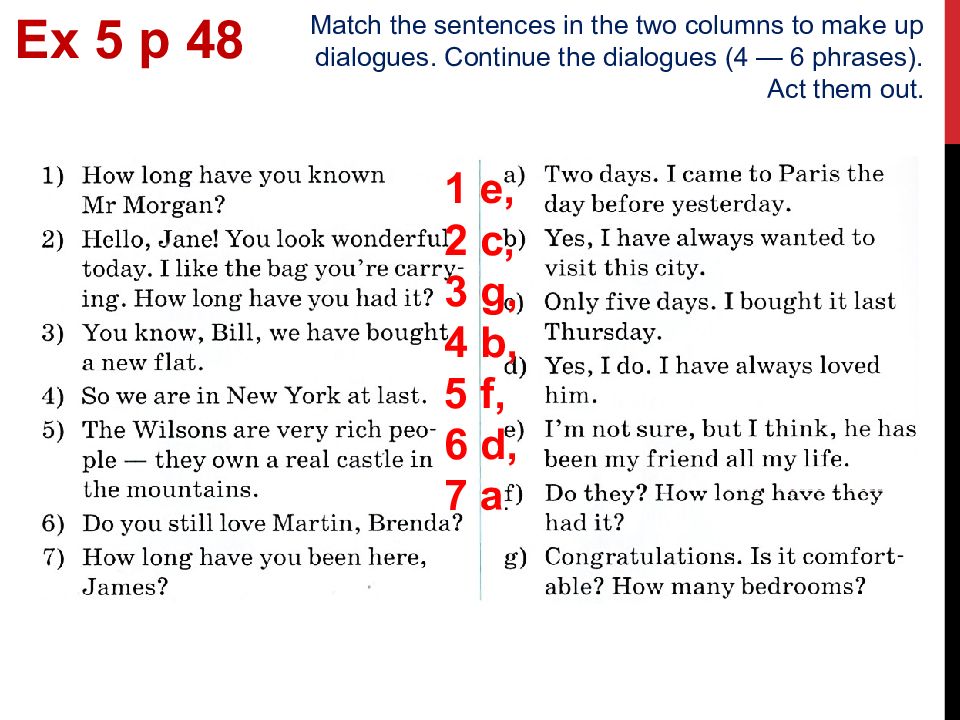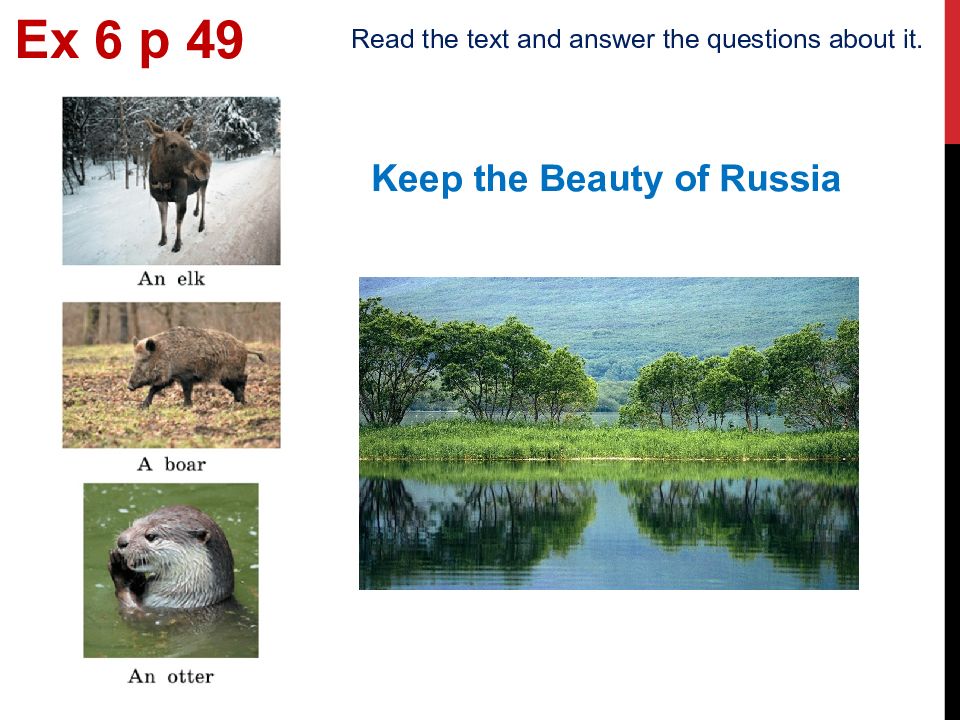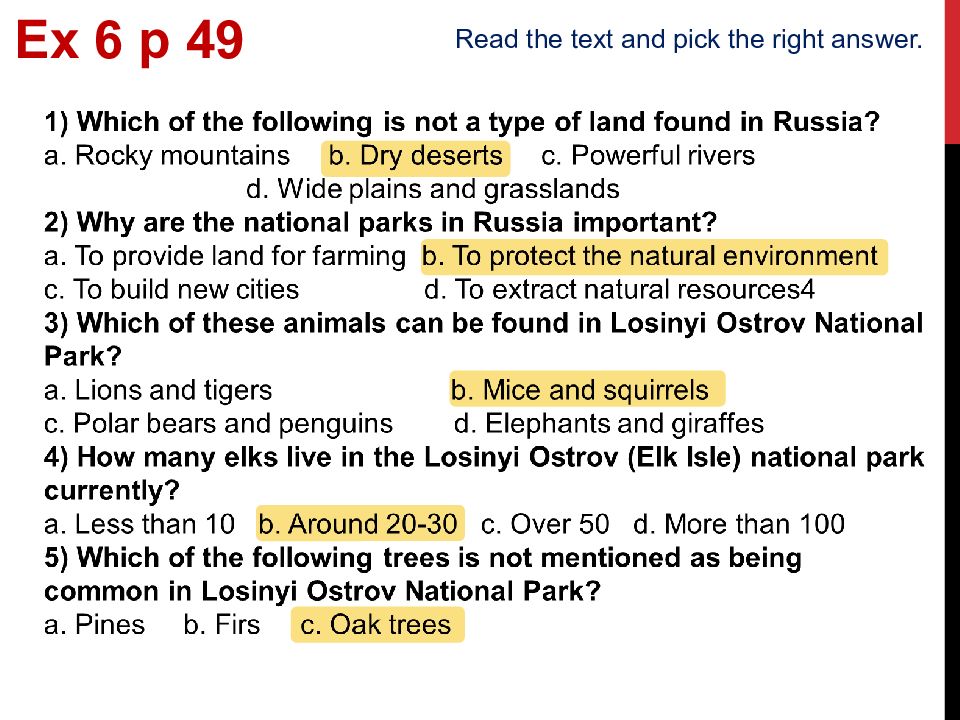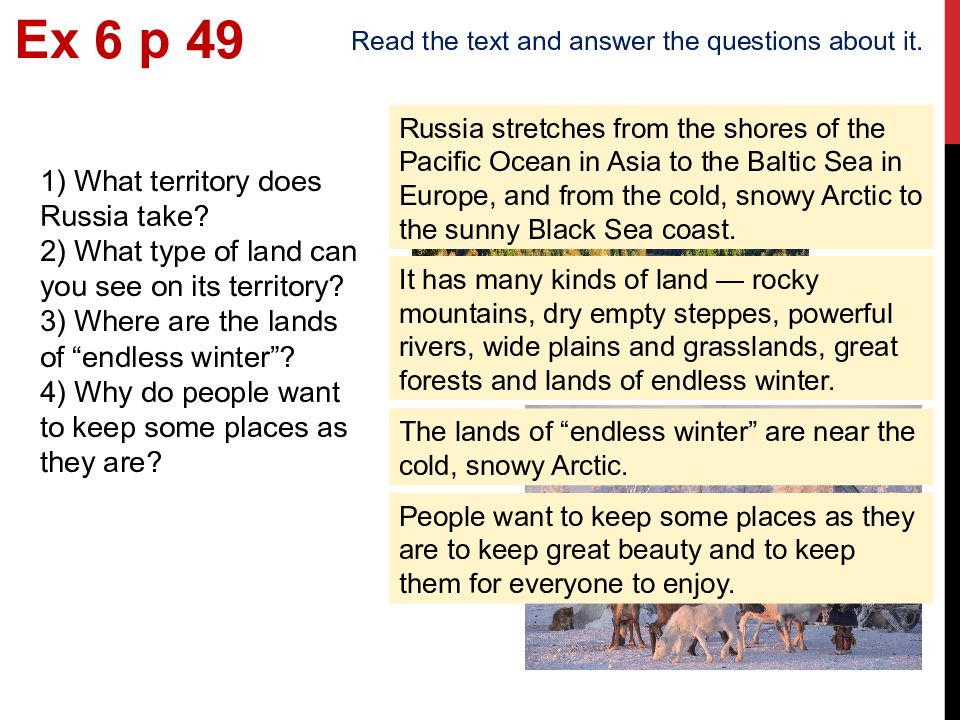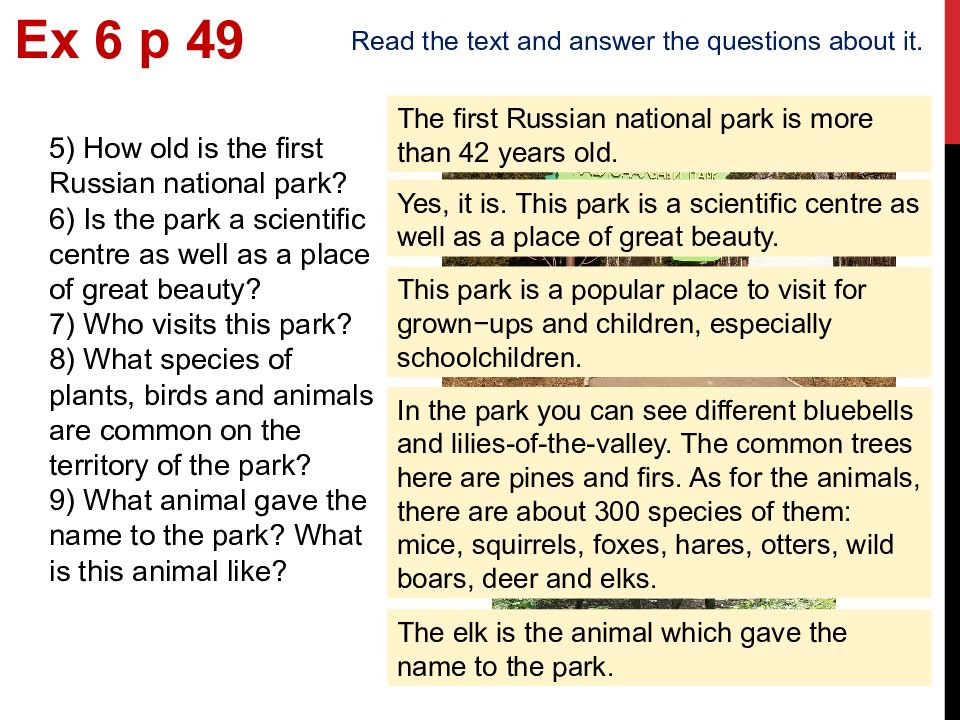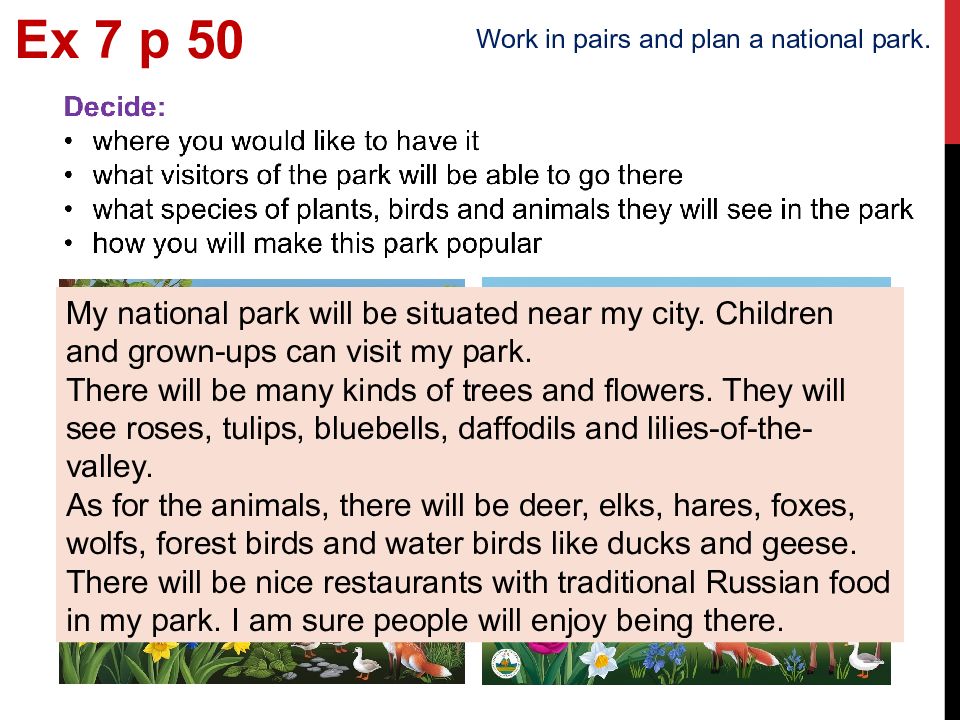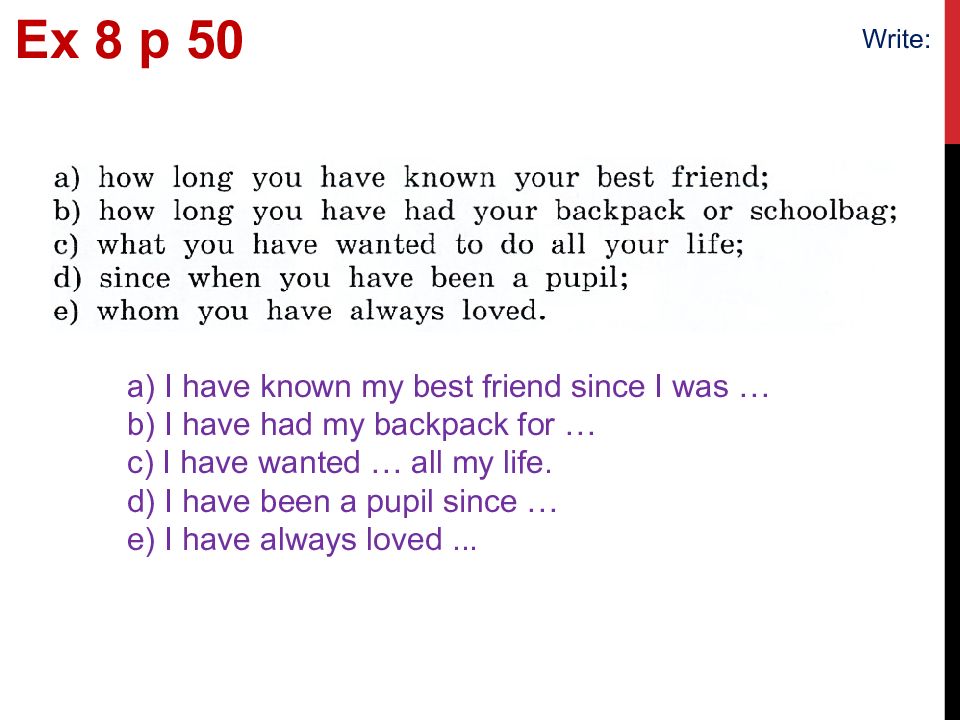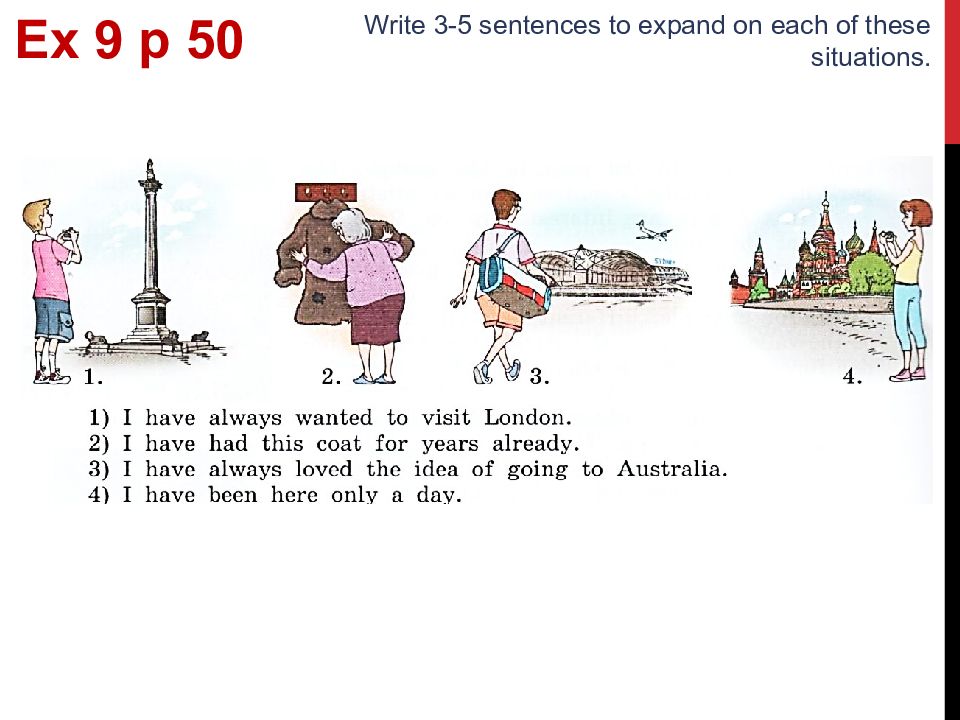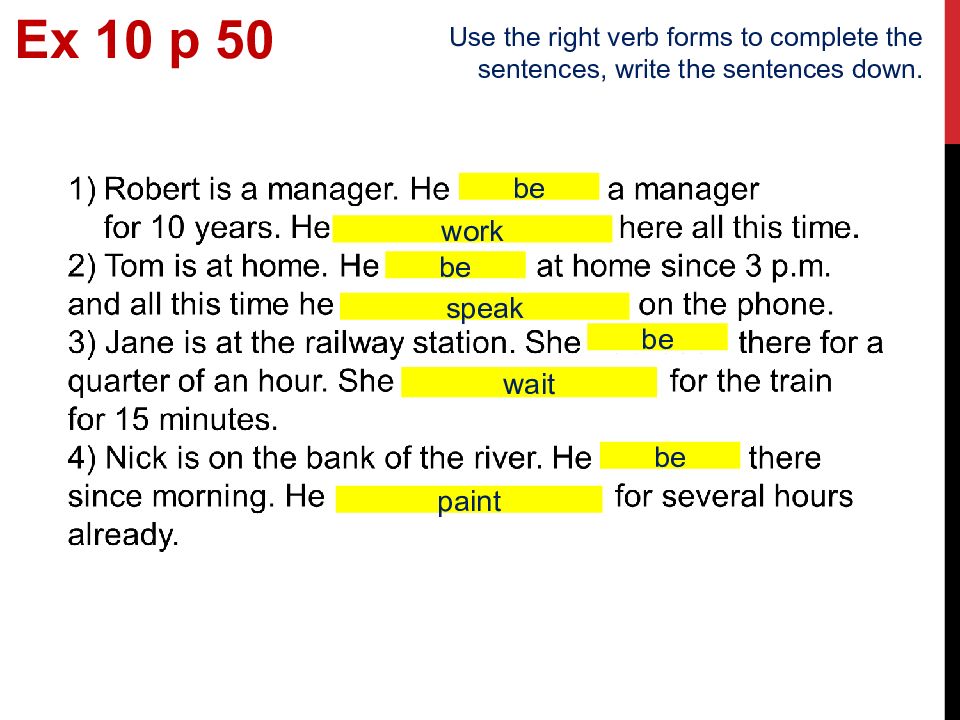Слайд 4
p 46 В английском языке есть такие глаголы, которые в продолжительной ( progressive ) форме не употребляются. Называются они « stative verbs » или «глаголы состояния». «STATIVE VERBS» или «глаголы состояния» Такие глаголы описывают состояние объекта, а не само действие и обычно используются в Present Perfect, когда действие началось в прошлом, но еще не закончилось чувства, эмоции love, like hate ( ненавидеть ) enjoy ( наслаждаться ) adore ( обожать ) admire ( восхищаться) мыслительные процессы to think ( думать) know (знать) want (хотеть) forget (забывать) обладание to be ( быть) to have ( иметь) own (владеть) восприятие: to see ( видеть), to smell ( нюхать), to taste ( пробовать), to feel ( чувствовать), to look ( смотреть), to fit ( подходить)
Слайд 7
Example: Say how long they have been doing these jobs. 2) Victor has been a worker for ten years. 3) Jim has been a doctor since he finished school. 4) William and Bob have been clowns for three years and a half. 1) Mrs Wenders has been a teacher since 2008. Ex 3 p 47
Слайд 8
5) Patrick has been an astronaut since 2011. 6) Diana has been a photographer for 7 years. 7) Margo has been an artist since 2010. 8) Kevin has been a pilot for 5 years and a half. Say how long they have been doing these jobs. Ex 3 p 47
Слайд 9
How long have they had them? Ex 4 p 48 Example: The Davidsons/for a year and a half The Davidsons have had a garage for a year and a half. 1) The Coppers have had a house for 3 years. 2) Miss Simpson has had this hat for years. 3) Megan has had this camera since last summer. 4) Harry has had the bicycle since his last birthday.
Слайд 10
How long have they had them? Ex 4 p 48 5) Alan has had the computer since 2011. 6) Alice has had the mobile since her parents bought it. 7) Doris has had the ring for 4 years and a half. 8) Aunt Grace has had her flower garden for 15 years.
Слайд 11
Match the sentences in the two columns to make up dialogues. Continue the dialogues (4 — 6 phrases). Act them out. 1 e, 2 c, 3 g, 4 b, 5 f, 6 d, 7 a. Ex 5 p 48
Слайд 12
− How long have you known Mr Morgan? − I’m not sure, but I think, he has been my friend all my life. − Really? Where did you meet him? − I met him at primary school. − Hello, Jane! You look wonderful today. I like the bag you’re carrying. How long have you had it? − Only five days. I bought it last Thursday. − Where did you buy it? − I bought it at The Shopping centre. − Was it expensive? − Oh yeah, it was. But it worth it. − Do you still love Martin, Brenda? − Yes, I do. I have always loved him. − And what about him? − I think he doesn’t love me. He hasn’t called me since last Sunday. − Oh, dear! Maybe he is busy with his work.
Слайд 13
Read the text and answer the questions about it. Ex 6 p 49 Keep the Beauty of Russia
Слайд 15
Read the text and answer the questions about it. Ex 6 p 49 1) What territory does Russia take? 2) What type of land can you see on its territory? 3) Where are the lands of “endless winter”? 4) Why do people want to keep some places as they are? Russia stretches from the shores of the Pacific Ocean in Asia to the Baltic Sea in Europe, and from the cold, snowy Arctic to the sunny Black Sea coast. It has many kinds of land — rocky mountains, dry empty steppes, powerful rivers, wide plains and grasslands, great forests and lands of endless winter. The lands of “endless winter” are near the cold, snowy Arctic. People want to keep some places as they are to keep great beauty and to keep them for everyone to enjoy.
Слайд 16
Read the text and answer the questions about it. Ex 6 p 49 5) How old is the first Russian national park? 6) Is the park a scientific centre as well as a place of great beauty? 7) Who visits this park? 8) What species of plants, birds and animals are common on the territory of the park? 9) What animal gave the name to the park? What is this animal like? The first Russian national park is more than 42 years old. Yes, it is. This park is a scientific centre as well as a place of great beauty. This park is a popular place to visit for grown−ups and children, especially schoolchildren. In the park you can see different bluebells and lilies-of-the-valley. The common trees here are pines and firs. As for the animals, there are about 300 species of them: mice, squirrels, foxes, hares, otters, wild boars, deer and elks. The elk is the animal which gave the name to the park.
Слайд 17
Work in pairs and plan a national park. My national park will be situated near my city. Children and grown-ups can visit my park. There will be many kinds of trees and flowers. They will see roses, tulips, bluebells, daffodils and lilies-of-the-valley. As for the animals, there will be deer, elks, hares, foxes, wolfs, forest birds and water birds like ducks and geese. There will be nice restaurants with traditional Russian food in my park. I am sure people will enjoy being there. Ex 7 p 50
Слайд 18
Write: a) I have known my best friend since I was … b) I have had my backpack for … c) I have wanted … all my life. d) I have been a pupil since … e) I have always loved... Ex 8 p 50
